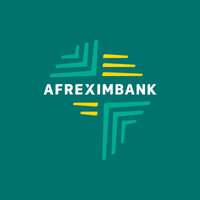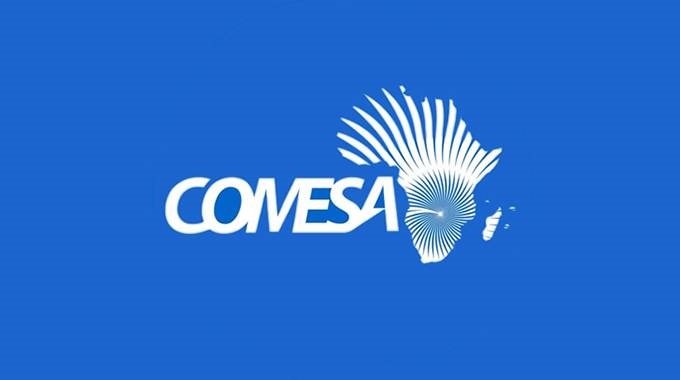Afreximbank and Shelter Afrique Development Bank (ShafDB) Forge Strategic Partnership to Unlock US$1 billion in investments

African Export-Import Bank (Afreximbank) and Shelter Afrique Development Bank (ShafDB) have signed a groundbreaking Joint Project Preparation Facility (JPPF) Framework Agreement. This strategic partnership aims to unlock a cumulative investment value of at least US$1 billion and is set to significantly transform housing and urban development across the continent and boost trade and investment.
Bank of Agriculture and Afreximbank Sign Agreement at IATF2025 for US$1 Billion Financing Programme to Support Bank of Agriculture’s National Smallholder Farmers Fund

The Bank of Agriculture (BOA), represented by its Managing Director/CEO, Mr. Ayo Sotinrin, has signed a landmark deal with African Export-Import Bank (Afreximbank), represented by the Executive Vice President for Intra-African Trade and Export Development, Mrs. Kanayo Awani. The agreement was finalisedduring the recently concluded and highly successful Intra-African Trade Fair (IATF) 2025 in Algiers, Algeria.
GHANA BREAKS NEW GROUND IN FOREST GOVERNANCE: ISSUES AFRICA’S FIRST FLEGT TIMBER LICENCE

Ghana officially launches the Forest Law Enforcement, Governance and Trade (FLEGT) licence, making it the first African country and the second globally after Indonesia to issue this licence. This historic milestone solidifies Ghana’s leadership in sustainable forest governance and legal timber trade.
African Development Bank and Tanzania Launch $63.2 Million TANIPAC Initiative to Combat Aflatoxin Contamination and Boost Agricultural Trade

The African Development Bank, the Government of Tanzania and the Global Agriculture Food Security Program (GAFSP) have officially launched the Tanzania Initiative for Preventing Aflatoxin Contamination (TANIPAC), marking a transformative step in the country's efforts to ensure food safety, protect public health, and strengthen agricultural exports.
African Development Bank, AfCFTA Secretariat, and Africa50 Unite to Unlock $3.4 Trillion Continental Market Through Strategic Infrastructure Development

The African Development Bank Group, the African Continental Free Trade Area (AfCFTA) Secretariat, and Africa50have signed a Memorandum of Understanding to catalyse infrastructure development across the continent and unlock the full potential of the largest free trade area in the world since the establishment of the World Trade Organization.
TICAD9: Japan International Cooperation Agency and African Development Bank sign agreement to extend Enhanced Private Sector Assistance initiative for $5.5 billion

The Japan International Cooperation Agency (JICA) and the African Development Bank on Thursday signed a Memorandum of Understanding launching the sixth phase of the Enhanced Private Sector Assistance (EPSA6) agreement, which provides a framework for critical resource mobilization and development partnership for African countries.
Innovating Trade, Powering Growth: COMESA Strengthens Trade Ties and Regional Leadership in Nairobi

Let us work together to unlock the full potential of our common market and make regional trade more inclusive, efficient, and resilient. This was said by Kenya’s Principal Secretary for Trade, Ms. Regina Akoth Ombam, during the official opening of the 41st Meeting of the COMESA Trade and Customs Committee, which has commenced in Nairobi, Kenya.
Advancing Trade Facilitation in the Great Lakes Region

Members of the Regional Coordination Committee (RCC) for the Great Lakes Trade Facilitation and Integration Project (GLTFIP) met in Lusaka, Zambia from 14-16 July 2025 to review progress recorded so far. The meeting brought together key stakeholders from Burundi and the Democratic Republic of Congo (DRC), development partners, and project implementers.
COMESA Ministers Chart Path for Sustainable Infrastructure Growth

Ministers responsible for energy, transport, ICT and communications from the Common Market have endorsed a series of critical sectoral reports and action plans aimed at advancing sustainable infrastructure across the region.
African Development Bank awards $1 million grant to support green skills development for South Africans, with focus on youth

The African Development Bank, through the Fund for African Private Sector Assistance (FAPA), has awarded a $1 million grant to South Africa’s National Business Initiative (NBI) to strengthen efforts to build a dynamic, demand-led skills ecosystem that enables South Africans, particularly young people, to access emerging job opportunities in the green economy.




